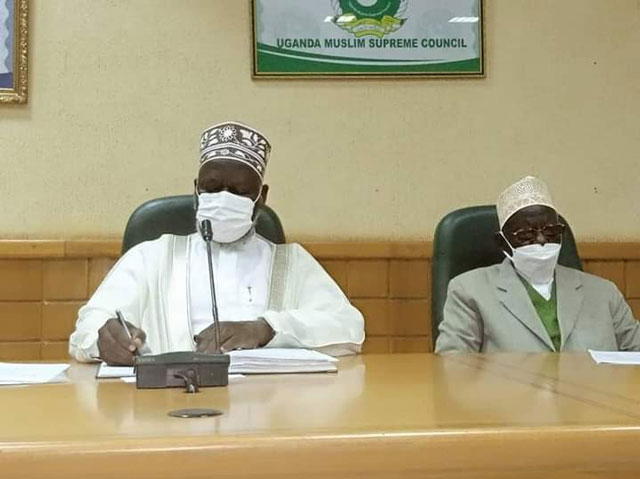
Kampala, Uganda | THE INDEPENDENT | A commission set up to review the Uganda Muslim Supreme Council (UMSC) constitution has finally handed over a final draft bringing to an end six months of consultations.
While the details of the draft were not divulged as they await discussion and approval by the General Assembly, the highest decision-making organ of UMSC that will convene on July 11th, 2022, the Mufti of Uganda, Sheikh Shaban Mubajje, said the document is subject to changes if they arise as the assembly is the final arbiter.
Ass. Prof. Idris Serugo Kasenene, who chaired the twenty-one-member commission told journalists Monday evening that the draft is representative enough since apart from the regions where they interviewed over four thousand respondents, they conducted key informant interviews with key entities such as the Uganda Police, the Ministry of Information and National Guidance, Uganda Bureau of Statistics and the legal fraternity among others to ensure that their recommendations are in tandem with the constitution and other laws of Uganda.
This process however even as it was given a green light and funded by the government to seek views from the seventy-eight Muslim districts across the country has faced criticism from some sections of Muslims including the Kibuli faction that asked the followers to ignore calls from UMSC to participate in the review.
When asked whether all Muslim factions and sects in the country were consulted, Kasenene said they wrote to every one of them including the Kibuli faction that never replied to his letter. He said the Tabliq led by Amir Ummah Sheikh Muhammad Yunus Kamoga and Juma and Zukuri led by Sheikh Obed Kamulegeya contributed their views that were included in the draft constitution.
The Commission Spokesperson, Sheikh Khassim Kamugisha, says that the reviewed Constitution, which will be used in the forthcoming UMSC elections shall provide a platform for the unity of Muslims, prosperity, and development as the views contained in the draft address gaps regarding the needs of some special groups in society like women, children, youths, and Persons with Disability which weren’t catered for in the 1986 amendments.
The constitution hasn’t been amended since 1986 and officials say some of the provisions had been overtaken by events and it no longer addresses emerging issues among the Muslim fraternity. This constitution was promulgated in 1972 at the establishment of UMSC.
*****
URN
 The Independent Uganda: You get the Truth we Pay the Price
The Independent Uganda: You get the Truth we Pay the Price





